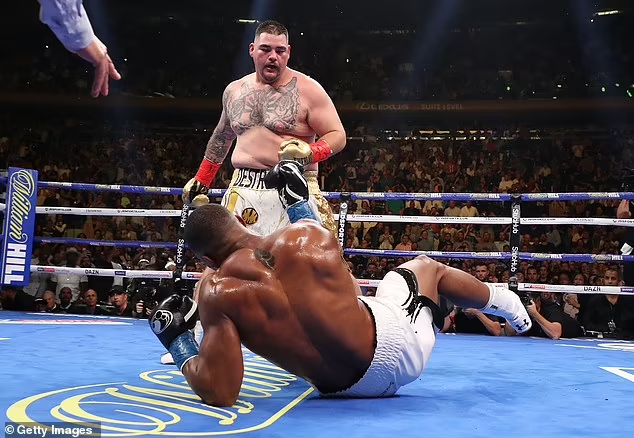power struggle brewing in boxing: We’ve waited almost 25 years for an undisputed heavyweight champion. Oleksandr Usyk rose to the top and now the IBF wants to strip him of his belt.
Why strip the man who’s got all those belts? Seems ridiculous, surely?
It all comes down to the IBF and its mandatory challenger. The IBF, according to its rules, has to strip Usyk if he doesn’t fight their mandatory challenger next. That man is Daniel Dubois.
Really there is no other option, as ridiculous as it sounds.
The idea of a mandatory was a lovely idea – in 1956 when there was only one sanctioning body.
But as soon as you get more than one recognised sanctioning body, we now have four – and more than one champion – the mandatories are instantly diluted.

The IBF has history in this department and this is not the first time it has backed itself into a corner.
How else do you explain Czar Glazkov being the number one contender back in 2015?
When Tyson Fury become unified champion in November 2015, the very next morning his manager and promoter, Mick Hennessy, was fielding phone calls over his scrambled eggs trying to keep the IBF belt.
It was probably 1am in New Jersey where the IBF is based, Tyson wasn’t even down for breakfast yet.
The IBF stripped Fury just over a week later. Within 50 days, they had arranged an alternative world title fight between their mandatory Glazkov and American Charles Martin.
But the IBF v Usyk is much more than a singular disagreement. This is boxing v the sanctioning bodies. And the power struggle has already started.
We have to remember one single thing, because this is what makes boxing unique from all other sports, the way we ‘rank’ our fighters isn’t done in a boxing ring.
It is, and always has been since the early 1960s, a kind of horse trading.
A group of people show up at a five-star hotel somewhere, at one of the sanctioning bodies’ annual conventions, they sit out on the veranda drinking cocktails and they trade. Every fighter ranked in the WBC, WBA, WBO and IBF’s rankings pays sanctioning fees.
If you write down the last 10 heavyweight champions, don’t imagine that any of the ‘mandatory challengers’ have been through a long, gruelling process to get to that position.
Sanctioning bodies are a business. They want to make a profit and it has been a lean period for them.
Over 60 years, 2023 was only the second year when there was only one heavyweight world title fight. That’s a bad time for the sanctioning bodies.
They’ll make more money in the short-term by sanctioning Dubois v Anthony Joshua in September, rather than being forced to wait until December for Usyk’s rematch against Fury.
Your may be interested to read: Wayne Rooney will only be regarded as a Manchester United great once he retires




































